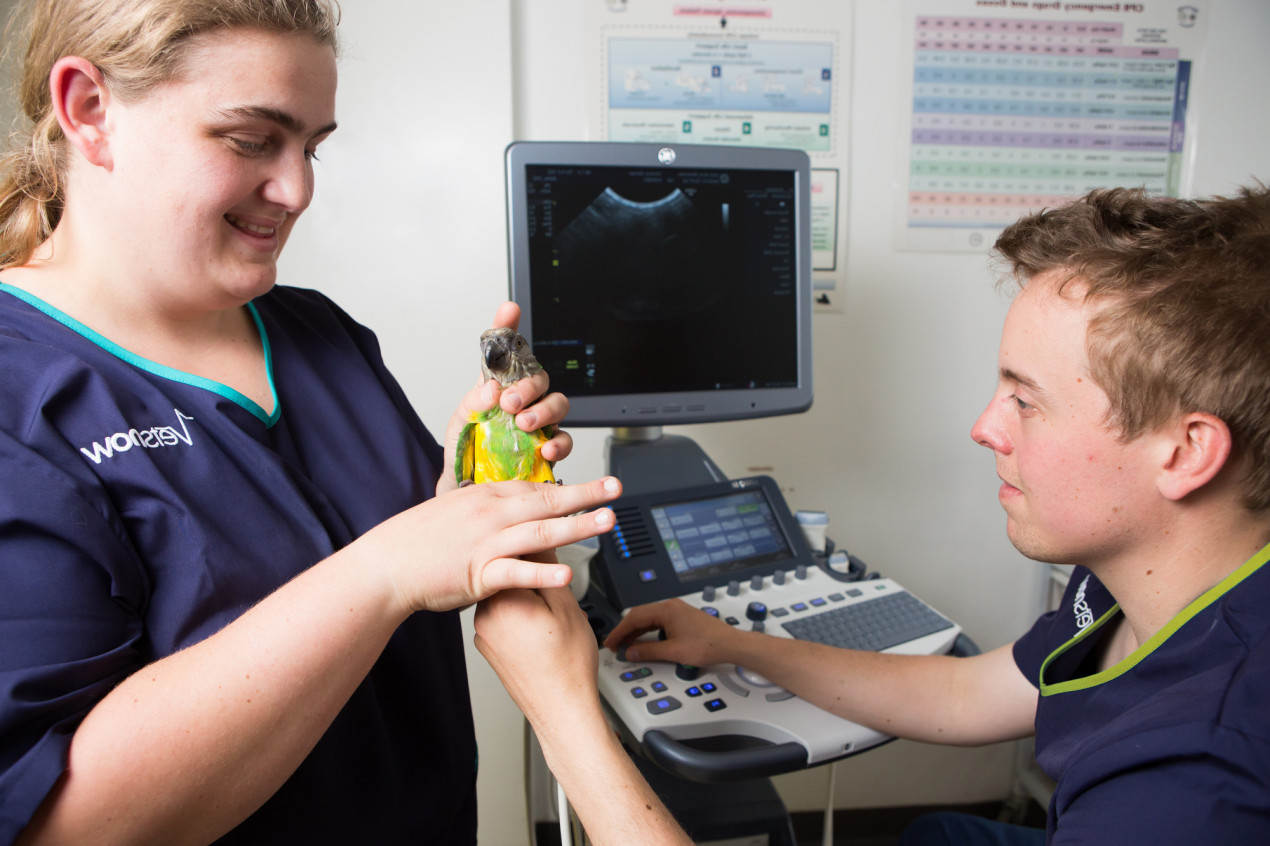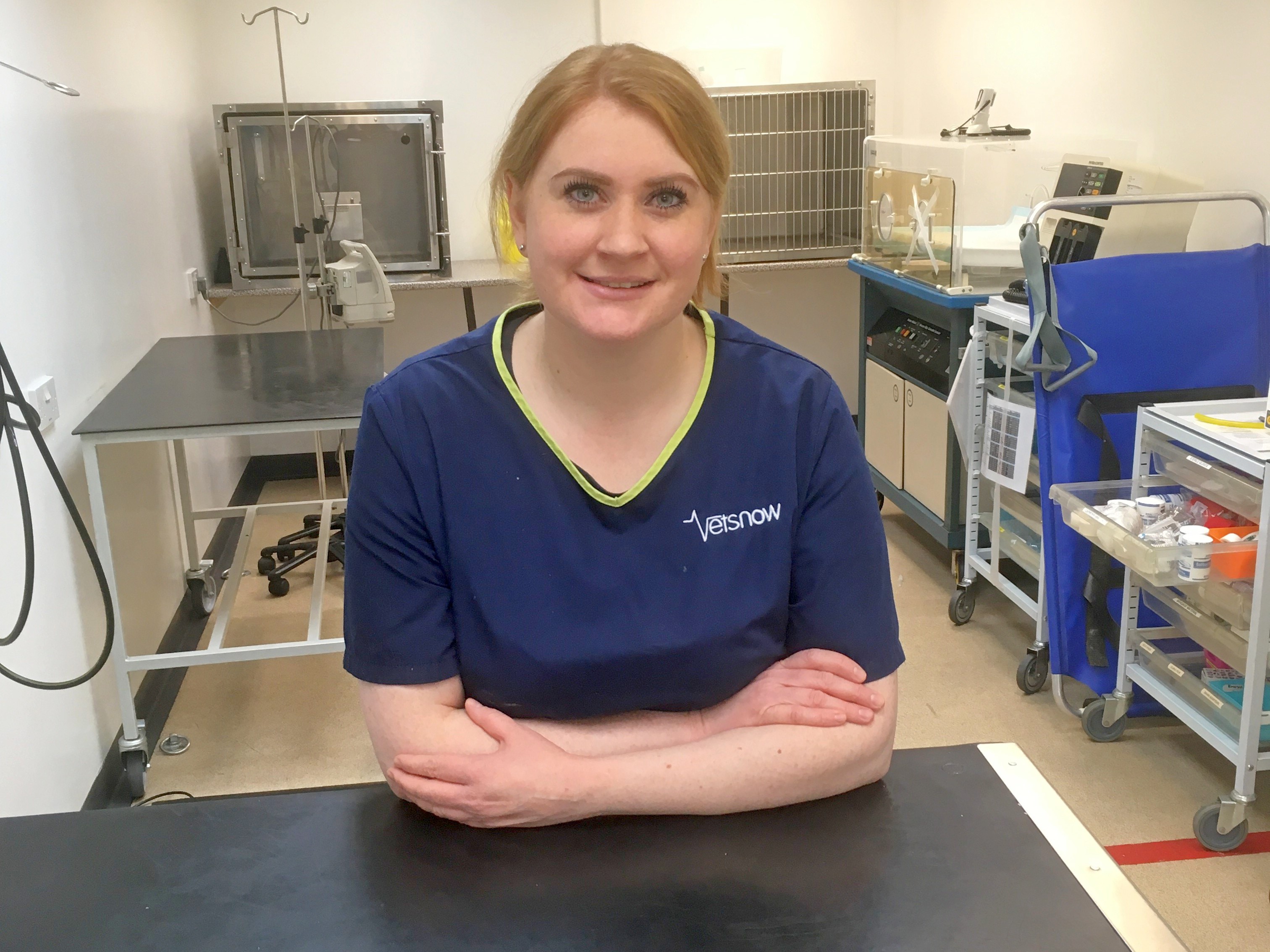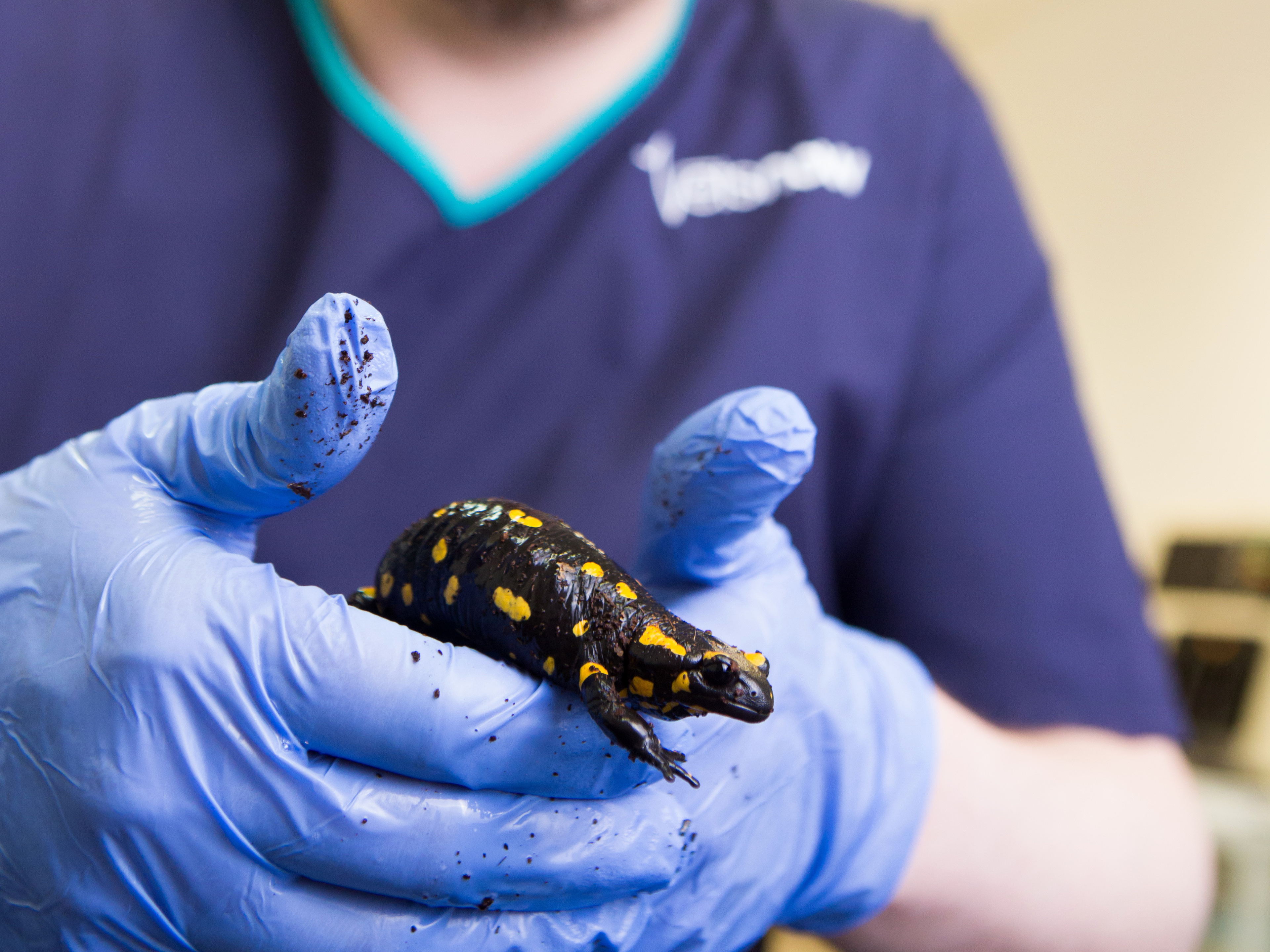Exotics enthusiast shines a light on what makes Vets Now in Swindon a unique place to work
Great Western Exotics has a long-established residency programme.
It’s the only one of its kind in the UK and over its three-year term vets work towards the ECZM (avian) diploma, being mentored by renowned exotics specialists.
Sara Jones, 30, who is originally from north Wales, is the latest vet to embark on the residency.
She told content marketing manager Iain Harrison about her background, why she loves working in exotics and what she hopes to achieve over the next three years.
When did working as a vet become an ambition?
I’ve never wanted to do anything else. Our family had lots of small animals while I was growing up and I was set on this path from an early age. I’ve never been distracted by other careers, and if I didn’t get into vet school, I planned to become a medic, or a scientist, or something based in animal welfare or zoology.
Where did you study?
I studied veterinary science at the University of Liverpool and also did a year-long intercalated degree course in veterinary pathology at the Royal Veterinary College. During this, I did a placement at London Zoo, which was really interesting and involved a lot of work with exotic animals.
How did you end up at Vets Now?
After graduating in 2011, I began working in a first-opinion exotic and small animal practice, before moving on to a larger practice where I helped develop the exotics caseload. It had patients from across Lancashire and Yorkshire. I stayed there for three-and-a-half years and did as much CPD in exotics as I possibly could.
I then came across Neil Forbes at the Vets Now ECC Congress in Harrogate and spoke to him about gaining further experience. Neil offered me the opportunity to work in GWE at weekends to gain practical experience. From there, I became so enthusiastic about exotics that I started coming down more and more on weekends and holidays. I began the three-year residency in mid-November.
What do you enjoy doing outside of work?
As well as doing zoo work in the UK, I’ve volunteered with Elephants Abroad in Africa and been to India to work with Mission Rabies. I’ve also volunteered with the Worldwide Veterinary Service as well as other smaller anti-rabies charities.
Why did you choose to specialise in avian and exotic animals?
I’ve always had an interest in exotics. I found that when I was doing the day-to-day work, there was a slight lack of fulfilment. I was doing a decent job, but I felt that I could do a lot more. I had a real passion for exotics and wanted to learn as much as I could, so I decided to go down that route.
What do you enjoy most about your job?
The people I meet are so interesting, and there is such a variety of day-to-day cases that you’re always learning. We realise we don’t know everything, especially compared to the medical profession, but we’re always thinking outside the box and using our skills and knowledge to help save animals. Working in exotics encompasses everything I want to do in life. I never go home and feel like I haven’t been mentally stimulated.
What would you tell your younger self?
Life can be unpredictable as a vet. You work long shifts, so it’s essential to keep up your other interests and hobbies and to look after your health. For most vets, it is more than a job, it is a vocation, so follow your interests, and you’ll be rewarded. There is nothing more satisfying than returning an animal in full health to their owner.
What advice would you give to someone thinking of becoming a vet?
Before I entered the profession, I spoke to a lot of vets about veterinary work and the pay and hours and so on, so I knew what I was getting myself into. Some of the people I studied alongside weren’t quite as aware and didn’t anticipate it to be as full on as it is. The moral of the story is go in to this career with your eyes open, do lots of work experience and see if it’s a suitable career for you before you start.
Where do you see yourself in five years?
I’ll hopefully have completed my residency and obtained my diploma. I’m really interested in teaching at a university as I’d like to share as much knowledge about exotics as possible and increase the level of understanding. There’s still very little taught about exotics in universities – on my degree course only three days out of five years of learning focused on them. It was really up to the students to find out more. So it’s important to spread the knowledge about these animals so that when graduate vets go into practice, they’re more aware of what they’re doing.
What do you do to achieve work/life balance?
I love travelling, taking part in the theatre and I’m currently getting singing lessons. I absolutely adore my amphibians, and I go to a lot of amphibian shows just to see how people keep their pets. We also all socialise really well here in Swindon.




